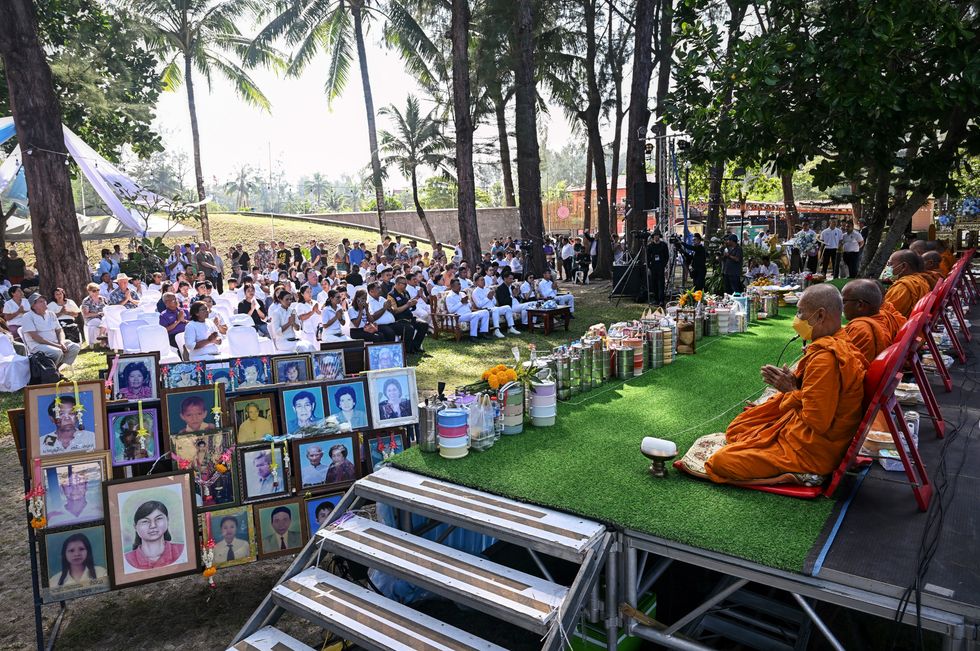Aiming to enhance early cancer detection, NHS authorities are set to eliminate approximately two-thirds of their cancer waiting time targets. The intention is to streamline the existing nine targets down to three, with the support of renowned cancer experts and the objective of modernising outdated standards, the BBC reported.
However, Pat Price, an oncologist and visiting professor at Imperial College London, who also leads the Radiotherapy UK charity, has expressed significant apprehension.
The oncologist underscored the current inadequacies in cancer treatment capacity and emphasised that the fundamental issue lies in insufficient investment rather than an excessive number of targets.
After a year of consultations, a decision on these changes is imminent, pending final approval from health secretary Steve Barclay.
The proposed plan involves retaining three key targets: diagnosing cancer within 28 days of referral, commencing treatment within two months of an urgent referral, and initiating treatment within one month after a treatment decision.
Among the targets being discarded is the two-week waiting time for an initial consultation with a specialist.
According to a spokesperson from NHS, this alteration is expected to expedite diagnoses for more patients and facilitate greater utilisation of diagnostic technologies, including artificial intelligence.
Wes Streeting, Labour's shadow health secretary, has strongly criticised the Conservative government, accusing them of compromising patient standards and causing a crisis in cancer care.
Streeting stressed the importance of focusing on reducing waiting times instead of lowering patient standards.
Recent data reveals that in June, 59.2% of cancer patients in England who received their initial treatment following an urgent GP referral waited less than two months.
While this shows a slight improvement from the previous month, it remains considerably below the 85% target achieved last in 2015.
It was revealed that merely 62% of patients received attention within two months after obtaining a positive outcome from a national cancer screening examination, a figure considerably lower than the 90% target.
During the commencement of consultations regarding the proposals last year, the NHS emphasised that the prevailing two-week benchmark failed to establish a definitive timeline for patients to obtain their test results or secure a confirmed diagnosis.
Speaking on BBC Radio 4's Today programme, Price, who is also co-founder of the Catch Up with Cancer campaign, leveled criticism at both ministers and NHS leaders.
She accused them of engaging in what she termed as "fiddling around" amidst an ongoing NHS crisis, suggesting that they are diluting the effectiveness of the targets.
Price asserted that altering the targets alone would not yield significant benefits for patients unless there is a substantial improvement in the speed and quality of patient treatment.
She emphasised the pressing need to enhance treatment capacity promptly.
Regarding breast cancer, the original target stipulated that 93% of women should undergo assessment in a comprehensive clinic within two weeks. However, the current figure stands at 74%, marking a notable decline.
Price expressed concern about the anticipated adjustment of the target to 75% within 28 days, which she regarded as a deteriorating situation.
She questioned whether it was acceptable for government officials and senior figures within the NHS to focus on fiddling with targets amid the ongoing crisis.
Meanwhile, Naser Turabi, director of evidence and implementation at Cancer Research UK, attributed the missed targets to years of inadequate investment.
Turabi called for a comprehensive strategy and increased staffing to address the issue effectively.
Speaking on the Today programme, Barclay clarified that the proposed changes were tailored to enhance outcomes and aligned with the preferences of the healthcare sector.
He emphasised that any modifications would be guided by requests from clinical specialists within the cancer field and would involve consultation with leading cancer charities.
The consultation process aimed to collaborate with consultants and clinical leaders to identify the most effective strategies for achieving optimal outcomes and improved survival rates.
Barclay highlighted a notable 28% surge in urgent GP referrals for suspected cancer cases and emphasised a substantial £2.3 billion investment in 160 community diagnostic centres, with 114 centres currently operational.
Proffesor Sir Stephen Powis, the NHS national medical director, supported the proposals, noting their endorsement by leading cancer experts and cancer charities.
He said the changes are intended to expedite the diagnosis and treatment of patients, while also enabling more patients to be referred directly for testing, reducing the need for unnecessary outpatient appointments.
Highlighting the potential benefits of streamlining the targets, Dr Tom Roques, a vice-president of the Royal College of Radiologists, suggested that it could facilitate cancer care delivery for teams. However, he cautioned against placing excessive reliance on targets as a comprehensive solution.
Roques emphasised that while targets serve as tools to enhance care, they are not a standalone solution.
He stressed the necessity of investing in workforce expansion and adopting innovative approaches to working.
According to him, these actions are pivotal for improving the current on-the-ground situation, which, in the assessment of many cancer teams, falls short of meeting patient needs.
Prime minister Rishi Sunak has made reducing waiting lists a central component of his agenda, with a specific focus on England's waiting lists, while health systems in Scotland, Wales, and Northern Ireland operate independently.
However, the total number of patients waiting for treatment in England increased from 7.47 million in May to 7.57 million in June.
(With inputs from The Guardian)






 Monks sit on a stage next to portraits of tsunami victims as people take part in an interfaith ceremony at the Ban Nam Khem Tsunami Memorial Park in southern Thai province of Phang Nga on December 26, 2024. (Photo: Getty Images)
Monks sit on a stage next to portraits of tsunami victims as people take part in an interfaith ceremony at the Ban Nam Khem Tsunami Memorial Park in southern Thai province of Phang Nga on December 26, 2024. (Photo: Getty Images)













